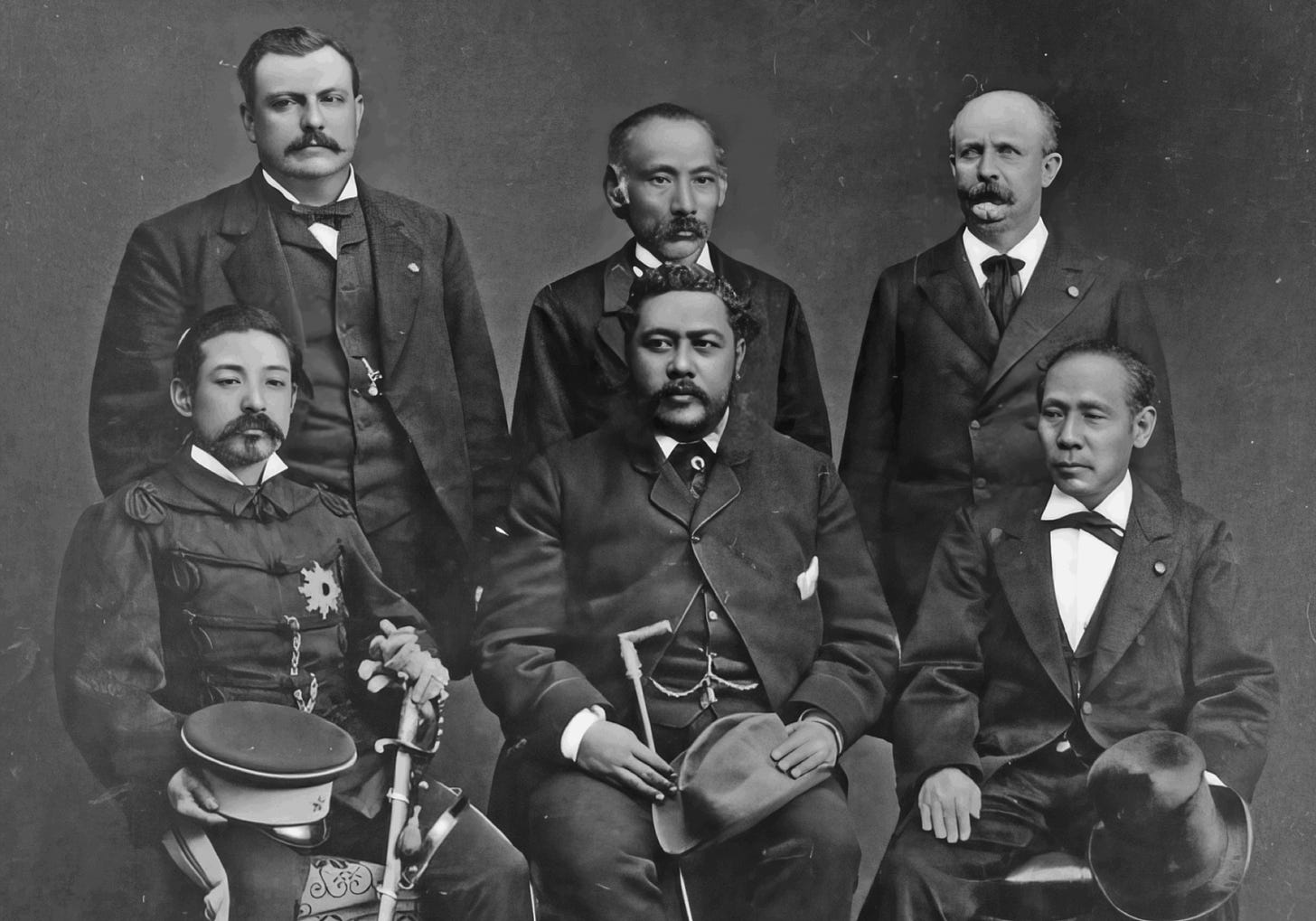The Kingdom of Hawaii: Year 132 under US Occupation
In a new publication, historian and legal scholar David Keanu Sai establishes (again) that the Kingdom of Hawaii never ceased to exist, as its 1898 annexation by the USA was void even under US law.
Dr. David Keanu Sai, a scholar at the University of Hawaii, just published an insightful chapter entitled “Hawai’i’s Sovereignty and Survival in the Age of Empire” in Chehabi and Motadel’s voluminous new book on Unconquered States: Non-European Powers in the Imperial Age (Oxford Academic), in which Sai concisely but with great precision establishes the historical record of the Kingdom’s continued legal existence over the past 200 years.
While much of the chapter discusses the fascinating 19th century foreign relations of the Hawaiian Kingdom and its domestic social structure, the claim of continued existence rests on the crucial observation that, firstly, Hawaii was an internationally recognised member of the international community and, secondly, no legal transfer of sovereign powers ever took place neither under international law nor under US domestic law. Hence, Sai concludes, the Hawaiian islands are not a possession of the United States, but merely an occupied territory—for 132 years.
The crux of the argument rests on the fact that as early as 1843, the Kingdom of Hawaii gained legal recognition as a sovereign equal among the family of nation states when the British and French recognised it as such in landmark proclamation:
Her Majesty the Queen of the United Kingdom of Great Britain and Ireland, and His Majesty the King of the French, taking into consideration the existence in the Sandwich Islands of a government capable of providing for the regularity of its relations with foreign nations, have thought it right to engage, reciprocally, to consider the Sandwich [Hawaiian] Islands as an Independent State, and never to take possession, neither directly or under the title of Protectorate, or under any other form, of any part of the territory of which they are composed.
(See footnote 20)
The USA followed suit a year later with its recognition of the Kingdom, after which successive Kings and Queens initiated a flurry of diplomatic missions, including a treaty with the Kingdom of Japan which, in fact, established that Hawaii had all the same extraterritorial (unequal) rights in Japan as did European and American powers (see page 479).
Only in 1893, on the even of the 50 year anniversary of the Kingdom’s independence, under orders of US minister John Stevens, a detachment of US marines landed in Honolulu to overthrow Queen Lili’uokalani. To avoid bloodshed, the Queen under official protest yielded her “authority until such time as the Government of the United States shall, upon the facts being presented to it, undo the action of its representatives and reinstate me in the authority which I claim as the constitutional sovereign of the Hawaiian Islands.” (page 482).
Successive US government officials, beginning with President Grover Cleveland, admitted regretfully that the actions of Stevens constituted an illegal injustice to Hawaii. Nevertheless, under his successor, President William McKinley the annexation of Hawaii went ahead, culminating in a Congressional resolution of 1898 providing for the incorporation of the islands into the United States body politic.
However, as Sai demonstrates, a unilateral declaration of annexation has no force under international law to confer actual rights of sovereignty. Acts by the legislature of the United States only have force within its own jurisdiction, not outside of it, a fact that even the US Department of Justice admitted in 1988 (page 485). Hence, as legal scholar Alfred de Zayas concluded, “the lawful political status of the Hawaiian Islands is that of sovereign nation-state in continuity; but a nation-state that is under a strange form of occupation by the United States resulting from an illegal military occupation and a fraudulent annexation.” (page 486).
For those interested in a deeper discussion, please read Sai’s chapter. It is freely available here. Or watch an interview with him on the Neutrality Studies YouTube Channel about this topic.
Cheers,
Pascal





At last, a voice of reality enters this world of conquest. Some native people in North America maintain that they were never conquered but of course their voices have been ignored. Maybe we are finally reaching a time when these voices can be heard and sovereignty respected. Maybe watching genocide in "real time" in Gaza has lifted the veil of denial about the ongoing genocides conducted by "settler occupiers." Let's have this reoriented understanding inform our human interaction everywhere with mutual respect, sovereignty, cooperation and integrity.
Glad to see that Dr. Sai continues the good fight. I heard him speak at UH and he’s an excellent legal scholar. With the help of the international court system, he might just help Hawaiians regain their sovereign rights.